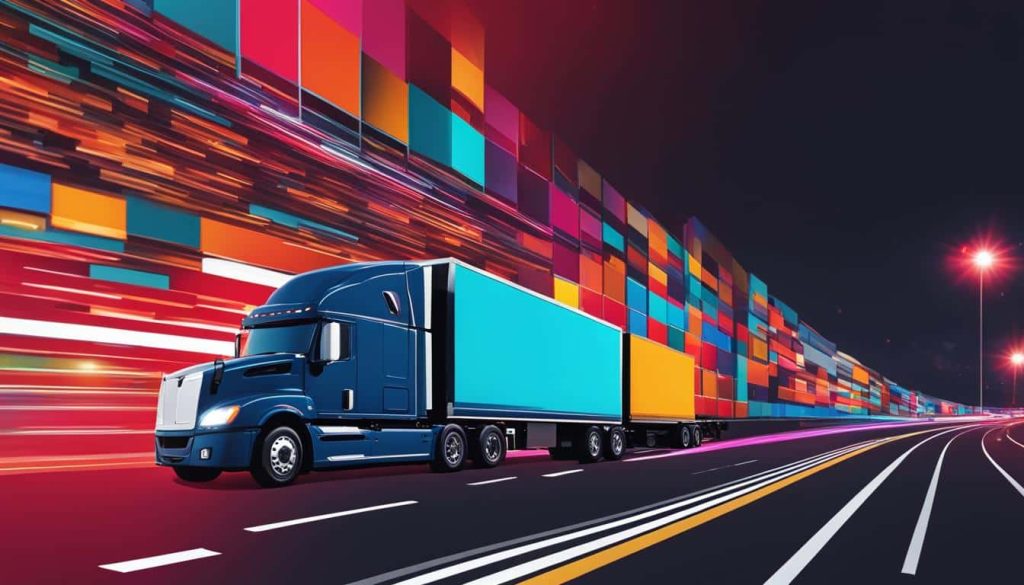Table of Contents
- Intro to LTL Freight Shipping
- Critical Trends in LTL Freight Shipping
- Technology Advancements
- Customer Demand in LTL
- Sustainability in Shipping
- Future Innovations
- Conclusion
Intro to LTL Freight Shipping
In today’s fast-paced economy, businesses often need efficient, cost-effective shipping solutions for smaller loads. LTL freight, or less-than-truckload shipping, offers a way to ship goods without requiring a full truckload. By consolidating shipments from various customers, LTL freight optimizes load capacity and minimizes costs. This approach allows businesses to share transportation costs, making it more affordable for companies that do not need to ship large volumes of goods. Small and medium-sized businesses that want flexibility and efficiency in their shipping procedures may find this strategy especially helpful. In addition to saving money, LTL shipping lessens the number of trucks on the road, which benefits the environment. LTL shipping is an eco-friendly alternative for carrying smaller loads since it uses less fuel and emits less greenhouse gases when trucks are filled up more effectively.
Critical Trends in LTL Freight Shipping
- E-commerce Growth: With the rapid rise of online shopping, the demand for efficient shipping solutions has surged. LTL freight services are crucial in meeting this need, allowing businesses to fulfill orders quickly and reliably. This increase in e-commerce has led to higher volumes of smaller shipments, which are ideal for LTL shipping. The ability to quickly adjust to fluctuating demand makes LTL a preferred choice for online retailers.
- Customization: Modern shippers seek more tailored solutions that cater to their unique needs. This demand for customization is driving innovation in the LTL sector as providers strive to offer more flexible and personalized services. Shippers want options such as expedited shipping and specialized handling, which LTL carriers can increasingly provide, thanks to technological advancements and improved logistics management.
- Technology Integration: Integrating technology like real-time tracking and automated systems is becoming standard practice, enhancing the efficiency and reliability of LTL shipping services. Technologies such as telematics and advanced analytics are helping shippers optimize their routes, reduce transit times, and improve overall service levels. These innovations enhance operational efficiency and give customers better visibility and shipment control.
Technology Advancements
The influence of emerging technologies on LTL freight is expected to be substantial. New technologies like the Internet of Things (IoT) and artificial intelligence (AI) are transforming the sector. AI algorithms make Load management and routing more efficient, and real-time updates can be obtained from Internet of Things (IoT) sensors that monitor cargo conditions. The ability of IoT sensors embedded in cargo to monitor temperature, humidity, and other environmental conditions allows for the efficient transportation of sensitive cargo. According to Logistics Management, these technological advancements are boosting efficiency, driving down costs, and improving customer satisfaction. Automation and machine learning also play significant roles in streamlining logistics operations, reducing manual errors, and enhancing vehicle predictive maintenance.
Customer Demand in LTL
Consumer expectations are changing quickly, especially in the e-commerce industry. Nowadays, customers want delivery services that are more dependable and swift. This change has forced LTL carriers to improve their offerings to meet these standards. Consumers anticipate precise tracking information, real-time updates, and prompt deliveries. Businesses that provide more effective LTL services in response to these changes will be better positioned to prosper in the cutthroat industry. To satisfy the varied needs of their clientele, shippers are increasingly concentrating on providing more flexible delivery alternatives, such as weekend and nighttime deliveries.
Sustainability in Shipping
As environmental concerns become more prominent, the shipping industry focuses on sustainability. LTL freight is particularly well-suited for green initiatives, as it reduces the number of partially filled trucks on the road. Carriers increasingly adopt fuel-efficient vehicles and implement route optimization technologies to minimize their carbon footprints. Sustainable practices in LTL shipping include using alternative fuels, such as biodiesel and electric trucks, which emit fewer pollutants than traditional diesel vehicles. Logistics companies invest in energy-efficient warehousing solutions and promote recycling and waste reduction programs. These efforts help protect the environment and appeal to environmentally conscious consumers and businesses seeking greener supply chain solutions.
Future Innovations
Looking to the future, innovations like autonomous vehicles and drones hold the potential to revolutionize the LTL freight industry. These technologies could significantly enhance last-mile delivery efficiency. Autonomous trucks could reduce the reliance on human drivers, alleviating some of the pressures caused by driver shortages. Drones have the potential to deliver packages directly to customers’ doorsteps, bypassing traditional road traffic and reducing delivery times. Meanwhile, blockchain technology promises to improve transparency and security in the supply chain, making logistics operations more reliable and secure. Blockchain can create tamper-proof records of shipments, ensuring data integrity and reducing the risks of fraud and errors. Smart contracts within blockchain systems can automate various shipping processes, from payment to customs clearance, further streamlining operations and reducing administrative burdens.
Conclusion
Technological improvements and changing client demands are causing a massive transition in the LTL freight shipping market. LTL carriers may increase their operational effectiveness and satisfy their customers’ rising demands by embracing innovation and strongly emphasizing sustainability. To stay ahead in this fast-paced environment, one must be dedicated to constant adaptation and improvement. LTL shipping will need to embrace cutting-edge technology and environmentally friendly practices to continue being a practical and affordable option for companies of all kinds as the sector develops.

